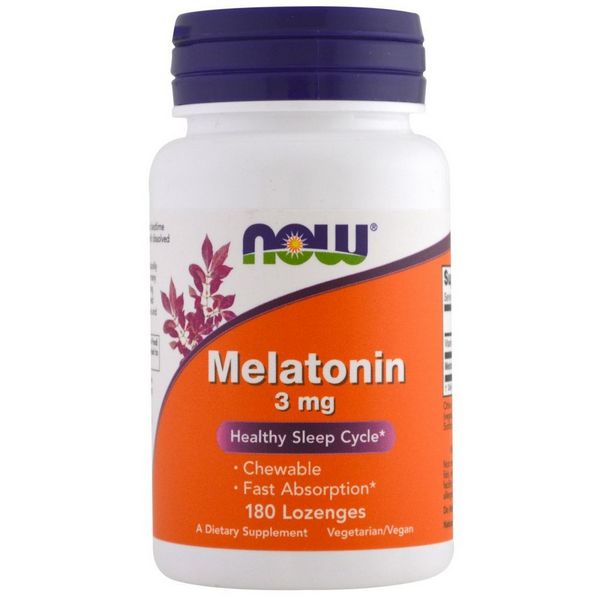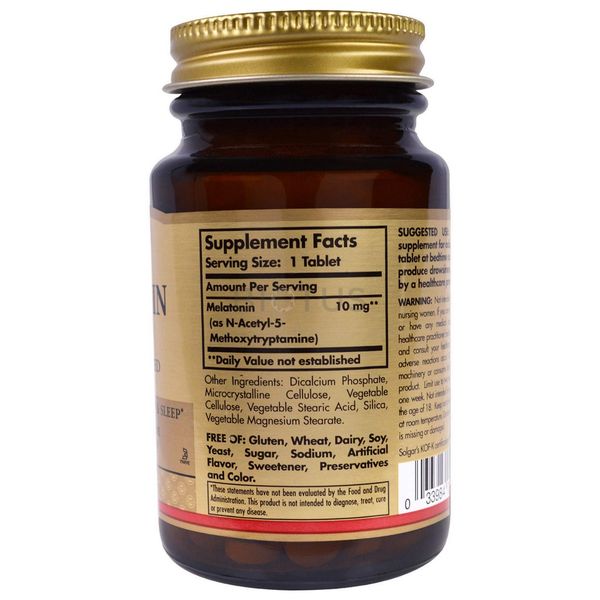Content:
- 20 Mg Melatonin – weight loss and principle of action
- Melatonin Dosage For Adults in bodybuilding: how to take, composition, reviews

Vita-melatonin – instructions, price in pharmacies, analogues | Vita-melatonin – complete information on the preparation: official instructions, price in the nearest pharmacies for Vita-melatonin, a list of analogues. Indications for use, method of use, side effects, contraindications, pregnancy. The average price is 91.30 UAH. Prices reported 4509 pharmacies.
active ingredient: melatonin;
1 tablet contains melatonin 3 mg;
excipients: lactose monohydrate, microcrystalline cellulose, potato starch, calcium stearate.
Dosage form. Pills.
20 Mg Melatonin – weight loss and principle of action
Main physical and chemical properties: tablets of a flat-cylindrical form with beveled edges and risky, white or almost white color.
Pharmacotherapeutic group. Sleeping pills and sedatives. Melatonin receptor agonists. ATH code N05C H01.
Pharmacological properties Pharmacodynamics. Vita-melatonin® is a synthetic analogue of the pineal neuropeptide (pineal gland) of melatonin. The main effect of Vita-melatonin® is to inhibit the secretion of gonadotropins. To a lesser extent, the drug inhibits the secretion of other hormones adenohypophysis – corticotropin, thyreotropin, somatotropin. In addition, under the influence of melatonin in the midbrain and hypothalamus increases the content of GABA and serotonin.
The above processes lead to the normalization of circadian rhythms, a change in sleep and wakefulness, rhythm of gonadotropic effects and sexual function, increase mental and physical performance, reduce the manifestations of stress reactions.
The drug has antioxidant properties, which leads to its membrane-stabilizing effect. Normalizes the permeability of the vascular wall and increases its resistance, improves microcirculation.
The drug improves only the impaired functional state of the endothelium, without affecting the normal function of the endothelium. Melatonin reduces systolic pressure and heart rate in elderly patients at rest, reduces the increase in blood pressure during psycho-emotional stress. The drug normalizes the autonomic nervous regulation of the cardiovascular system mainly during the night, which contributes to the improvement of the disturbed daily blood pressure profile.
Vita-melatonin®by stimulating cellular immunity reactions, it has an immunomodulating effect on the body.
Pharmacokinetics.
After ingestion, melatonin undergoes a significant transformation during the initial passage through the liver. Bioavailability of the drug is 30-50%. When ingested in a dose of 3 mg, the maximum concentration in serum and saliva is reached after 20 and 60 minutes, respectively.
Melatonin penetrates the blood-brain barrier, is determined in the placenta. The average elimination half-life of melatonin is 45 minutes. Excreted by the kidneys.
Clinical characteristics.
IndicationsFor the prevention and treatment of circadian rhythm disorders «sleep-wake» when changing time zones, manifested by increased fatigue; sleep disturbance, including chronic insomnia of functional origin, insomnia in the elderly (including with concomitant hypertension and hypercholesterolemia); to enhance mental and physical performance, as well as alleviate stress reactions and depressive states that are seasonal. High blood pressure and hypertension (I-II stage) in elderly patients (as part of complex therapy).
Contraindications Increased sensitivity to the components of the drug. Autoimmune diseases, lymphogranulomatosis, leukemia, lymphoma, myeloma, epilepsy, diabetes mellitus. The simultaneous use of monoamine oxidase inhibitors, corticosteroids, cyclosporine.
Interaction with other drugs and other types of interactions. Drugs blocking β-adrenoreceptors, clonidine, dexamethasone, fluvoxamine and some other drugs can alter the secretion of endogenous melatonin.
Vita-melatonin® may affect the effectiveness of hormonal drugs (estrogens, androgens, etc.), increase the binding of benzodiazepines with specific receptors, so their simultaneous use requires medical monitoring.
Melatonin may enhance the sedative properties of benzodiazepines and non-benzodiazepine hypnotics, such as zlepon, zolide, and zopiclone. Clear evidence has been obtained of the pharmacodynamic interaction of melatonin and zolpidem one hour after combined use. Simultaneous use leads to a stronger violation of attention, memory and coordination, compared with the use of zolpidem alone.
Vita-melatonin® may potentiate the antitumor effect of tamoxifen.
Dopaminergic and serotonergic effects of methamphetamine may be enhanced while it is used with Vita-melatonin®.
Vita-melatonin® can potentiate the antibacterial action of isoniazid.
Melatonin can be used with lisinopril in concomitant antihypertensive therapy in patients with functional insufficiency of the pineal gland, enhancing its effect.
In accordance with existing observations, melatonin induces CYP3A in vitro in concentrations exceeding therapeutic. The clinical significance of this result is unknown. The occurrence of induction can cause a decrease in the blood plasma of drugs that are administered in parallel.
Fluvoxamine increases the level of melatonin by inhibiting its metabolism by hepatic isoenzymes CYP1A2 and CYP2C19 cytochrome P450 (CYP). This combination should be avoided.
Patients receiving 5- or 8-methoxypsoralen should be closely monitored, which increases the plasma melatonin level by inhibiting its metabolism.
You should closely monitor patients who receive cimetidine. – a CYP2D inhibitor that increases the level of melatonin in the blood plasma by inhibiting its metabolism.
Smoking can reduce melatonin levels by induction of CYP1A2.
Patients receiving estrogens (for example, contraceptives or hormone replacement therapy) should be carefully monitored as the level of melatonin increases due to inhibition of its metabolism by CYP1A1 and CYP1A2.
CYP1A2 inhibitors, such as quinolones, can help enhance the action of melatonin.
CYP1A2 inducers, such as carbamazepine and rifampicin, can contribute to a decrease in plasma melatonin concentrations.
Features of the application Do not use for women who are planning a pregnancy, due to some contraceptive effect of melatonin.
When using Vita-melatonin® bright lighting should be avoided.
In patients with cirrhosis of the liver, the level of melatonin metabolism is reduced, therefore, it is necessary to use the drug in these patients with caution.
The drug can be used in patients with high blood pressure (especially systolic) and hypercholesterolemia. With long-term use Vita-melatonin® reduces cholesterol levels in patients with hypercholesterolemia, but does not affect cholesterol levels when it is normal in serum. The drug reduces the level of insulin and glucose in the blood plasma, so it can be used in patients with hypertension and hypercholesterolemia, accompanied by insulin resistance (HOMA index above 3 srvc. Units).
Caution is prescribed for hormonal disorders and / or hormone therapy, as well as for patients with allergic diseases.
Melatonin causes drowsiness. The drug should be used with caution if the likely drowsiness may be associated with a risk or danger to the patient’s health.
It is not recommended for patients with autoimmune diseases.
Patients with hereditary diseases such as galactose intolerance, Lappa lactase deficiency or glucose-galatose malabsorption should not use this drug.

Simultaneous alcohol intake reduces the effectiveness of melatonin.
Use during pregnancy or lactation.
The drug is not used during pregnancy and lactation due to the lack of clinical data.
The ability to influence the reaction rate when driving vehicles or other mechanisms.
Given that the drug causes drowsiness, at the time of taking the drug should refrain from driving and other work requiring concentration.
Dosage and administration For the treatment of Vita-melatonin® administered orally to adults from 3 mg to 6 mg (1-2 tablets) per day. Tablets should be taken 30 minutes before bedtime every day, preferably at the same time.
The course of treatment continues until the restoration of the physiological rhythm. «sleep-wake»but not more than 1 month.
When used prophylactically, the dose of the drug and the duration of its use are determined by the doctor depending on the individual characteristics of the patient and the course of the disease. Usually take 1-2 tablets per day 30 minutes before bedtime, preferably at the same time, for 2 months with a week break between courses (course of – 1 month).
For the treatment of chronic sleep disorders (including those with concomitant hypertension and / or hypercholesterolemia) in elderly patients, the drug is prescribed in the minimum effective dose of 1.5 mg (½ tablets) once a day, tablets are taken 30 minutes before bedtime. With insufficient efficiency, the dose is increased to 3 mg. Discontinuation of the drug should be carried out gradually, reducing the dose within 1-2 weeks.
Melatonin Dosage For Adults in bodybuilding: how to take, composition, reviews
According to the same scheme, the medicament is taken by elderly patients with high blood pressure and hypertension. The drug can be applied for 3-6 months at intervals of 1 week between monthly courses of treatment.
Renal failure. There are no studies on the effect of varying degrees of renal failure on melatonin pharmacokinetics; therefore, melatonin should be used with caution in such patients.
Liver dysfunction. There is no experience of using melatonin in patients with impaired liver function. Published data indicate markedly elevated levels of endogenous melatonin during daytime hours as a result of reduced clearance in these patients. Therefore, melatonin is not recommended for patients with impaired liver function.
Children. The experience of using the drug in pediatric patients is absent.
Overdose: Several cases of melatonin overdose have been described (single dose of 24-30 mg of melatonin). In case of overdose, disorientation, prolonged sleep, anterograde memory loss may develop. Symptomatic therapy.
Adverse Reactions In some cases, adverse reactions may be observed with the use of the drug.
Infections and invasions: herpes zoster.
From the side of blood and lymphatic system: leukopenia, thrombocytopenia.
Since the cardiovascular system: angina, palpitations.
On the part of the psyche: irritability, irritability, anxiety, insomnia, unusual dreams, mood changes, aggressiveness, agitation, tearfulness, early morning awakening, increased libido, depression.
From the side of the central nervous system: migraine, increased psychomotor activity, dizziness, drowsiness, memory impairment, impaired attention, impaired quality of sleep, paresthesia.
On the part of the organs of vision: reduced visual acuity, blurred vision, enhanced tearing.
On the part of the hearing and vestibular apparatus: dizziness when changing the position of the body.
Vascular disorders: flushing.
On the part of the gastrointestinal tract: abdominal pain, constipation, dry mouth, ulceration of the oral mucosa, vomiting, abnormal intestinal noise, flatulence, increased secretion of saliva, bad breath, gastroesophageal reflux.
Metabolism: hypertriglyceridemia, hypocalcemia, hyponatremia.
On the part of the hepatobiliary system: hyperbilirubinemia, increased activity of liver enzymes, abnormal liver function, abnormal laboratory data.
On the part of the skin and subcutaneous tissue: night sweats, dermatitis, eczema, erythema, itchy rash; itching, dry skin, psoriasis, nail damage.
On the part of skeletal muscles and connective tissue: pain in the extremities, muscle spasms, pain in the neck, arthritis.
On the part of the urogenital system: glycosuria, proteinuria, menopausal symptoms, polyuria, hematuria, nocturia, priapism, prostatitis.
General disorders: asthenia, chest pain, fatigue, thirst.
Other disorders: weight gain, change in electrolyte level.
Shelf life 3 years.
Storage conditionsStore in original packaging at a temperature not higher than 25 °C.
Keep out of the reach of children.
PackingOn 10 tablets in a blister; 3 blisters in a pack.
Vacation category. On prescription.
ManufacturerAA «KIEVSKY VITAMIN PLANT».
The location of the manufacturer and the address of the place of business.
04073, Ukraine, Kiev, st. Kopylovskaya, 38.
Website: www.vitamin.com.ua.